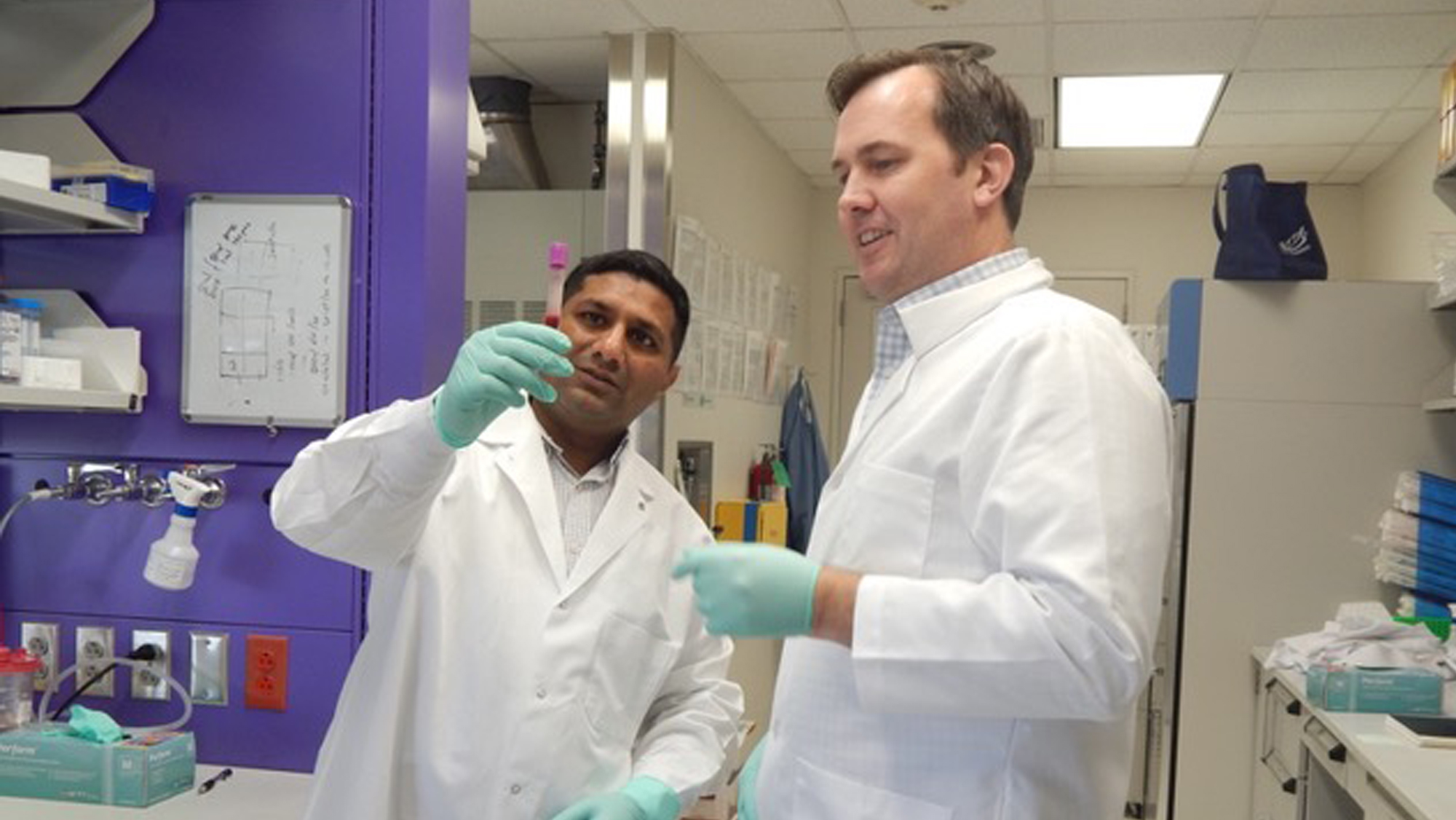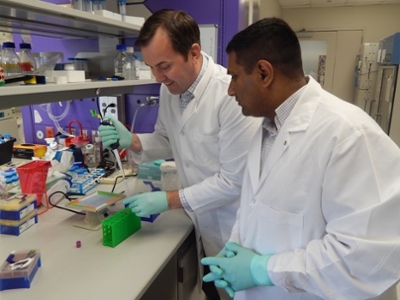
While blood vessel diseases are treatable in many cases, this can vary from patient to patient, and therefore, it is difficult to find the right cure for every patient. Some patients may be underdosed, while others get too many drugs unnecessarily. To help make the process more efficient, researchers from Texas A&M University, Texas Children’s Hospital and Baylor College of Medicine are working to design technology to predict the workings of vascular diseases and responses to drugs at a patient-specific level.
Dr. Abhishek Jain, assistant professor in the Department of Biomedical Engineering at Texas A&M, and his collaborator, Dr. Jonathan Flanagan from Texas Children’s Hospital and Baylor College of Medicine, were recently awarded the Trailblazer Award from the National Institutes of Health National Institute of Biomedical Imaging and Bioengineering for their research in sickle cell disease (SCD).
SCD is a group of genetic disorders that cause red blood cells to become misshapen and break down. From an early age, patients with SCD have a high risk of vascular disease and even stroke in some patients. Current models to test drugs used to treat

The team is designing an organ-on-a-chip that consists of a device that will mimic an artery of a pediatric SCD patient and associated biological readouts that will provide information on the progression of vaso-occlusion, including during drug treatment.
“The major outcome of this research will be that we will acquire a strong proof of
To train the technology to interpret data from the blood, researchers are isolating the cells of the blood vessel – progenitor endothelial cells – from blood samples of both healthy and SCD volunteers. When they include these cells and the blood flow of the same patient within their medical device, they will be able to predict if the patient will respond to drugs that prevent stroke or not.
“Approximately 10 percent of all SCD patients will suffer a clinically overt stroke before adulthood. The causes of stroke in SCD are poorly understood and there is an urgent need to define the underlying mechanisms. With a platform technology such as this, we may be able to identify the regulatory genes that cause stroke and find the most effective therapy to prevent stroke in these patients,” Flanagan said.
The Trailblazer Award is an opportunity for new and